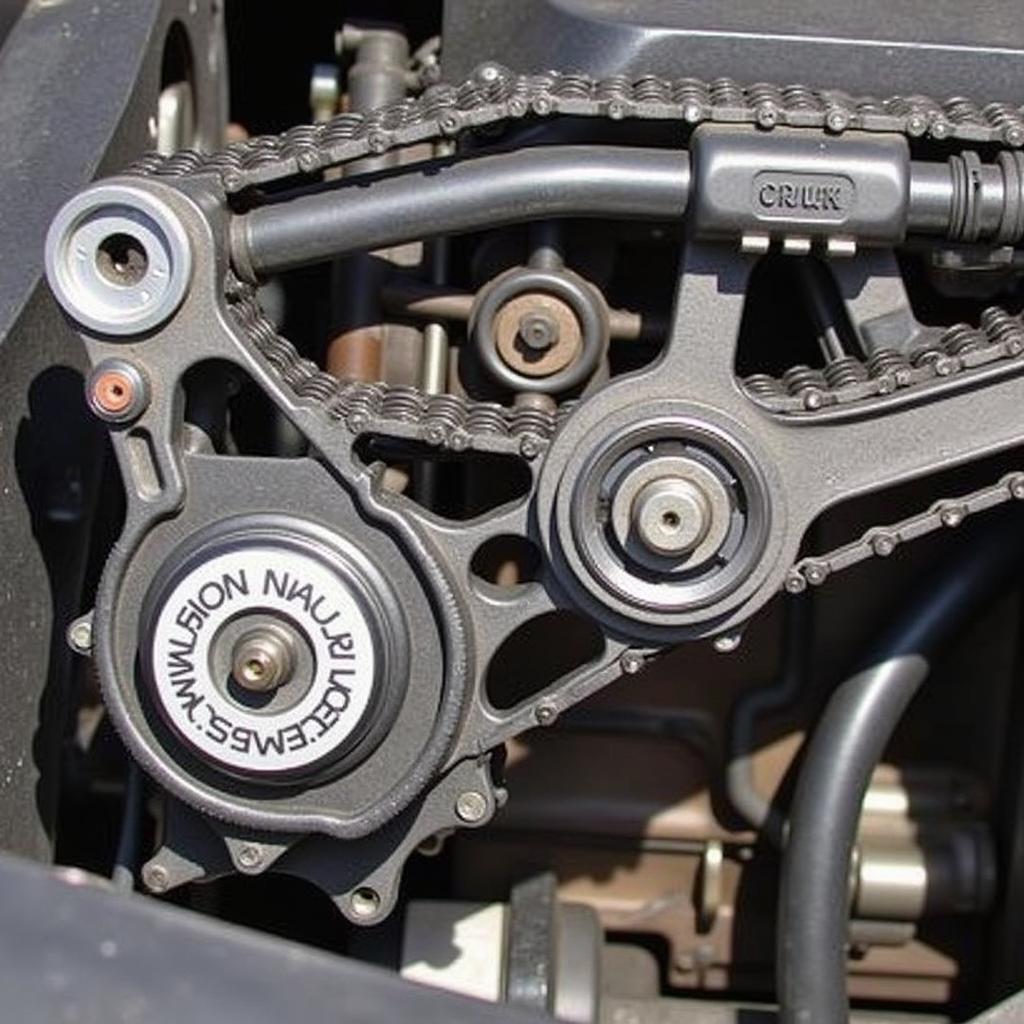Your cart is currently empty!

Troubleshooting 2013 VW Jetta Engine Noise and Multiple Codes
A noisy engine coupled with multiple diagnostic trouble codes (DTCs) in your 2013 VW Jetta can be a real headache. This article aims to help VW Jetta owners, mechanics, and technicians diagnose and fix the underlying issues related to “2013 vw jetta engine noise multiple codes.” We’ll cover common causes, diagnostic steps, and potential solutions, empowering you to tackle this problem head-on.
Understanding the 2013 VW Jetta Engine Noise Problem
Engine noise in a 2013 VW Jetta, especially when accompanied by multiple codes, can stem from a variety of issues, ranging from minor sensor malfunctions to more serious mechanical problems. Ignoring these symptoms could lead to further damage and costly repairs down the road. Therefore, understanding the potential culprits is crucial for effective troubleshooting.
Common Causes of Engine Noise and Multiple Codes in a 2013 VW Jetta
- Timing Chain Tensioner Issues: A failing timing chain tensioner can create a rattling noise, especially at startup or idle. This can also throw off the engine timing and trigger various DTCs.
- Fuel Injector Problems: Faulty fuel injectors can cause misfires, leading to rough idling, reduced power, and unusual engine noises. This often triggers misfire codes.
- Variable Valve Timing (VVT) System Malfunction: Issues with the VVT system, such as a stuck solenoid or worn components, can cause rattling or ticking noises, along with performance problems and related DTCs.
- Vacuum Leaks: Leaks in the vacuum system can disrupt engine performance and cause hissing noises, potentially triggering codes related to fuel trim or air intake.
- Exhaust System Leaks: A leaking exhaust manifold or other components can produce a ticking or hissing sound, and in some cases, trigger oxygen sensor codes.
 2013 VW Jetta Engine with Timing Chain Exposed
2013 VW Jetta Engine with Timing Chain Exposed
Diagnosing 2013 VW Jetta Engine Noise and Multiple Codes
Proper diagnosis is essential to pinpoint the root cause of the problem. Here’s a step-by-step guide:
- Retrieve Diagnostic Trouble Codes (DTCs): Use an OBD-II scanner to read the codes stored in the car’s computer. These codes provide valuable clues about the affected systems.
- Listen Carefully to the Engine: Identify the type of noise (rattling, ticking, hissing, etc.), its location, and when it occurs (idle, acceleration, deceleration).
- Inspect the Timing Chain Tensioner: Check for signs of wear or damage. A loose or rattling tensioner often indicates a problem.
- Check Fuel Injector Operation: Listen for unusual clicking or ticking sounds from the injectors. A fuel pressure test can help determine injector performance.
- Examine the VVT System: Look for leaks or damaged components in the VVT system. Check the operation of the solenoids and sensors.
- Inspect for Vacuum Leaks: Use a vacuum gauge to test for leaks in the intake manifold, hoses, and connections.
- Check the Exhaust System: Inspect the exhaust manifold, pipes, and muffler for cracks, leaks, or loose connections.
What if the noise is a rattling sound upon startup?
A rattling sound upon startup often points to a timing chain tensioner issue.
What if the noise is accompanied by a check engine light?
A check engine light combined with noise usually indicates a more serious problem that requires immediate attention. Retrieve the DTCs to get a better understanding of the issue.
“Regular maintenance and addressing issues promptly can prevent many engine noise problems,” says John Miller, a seasoned automotive technician with over 20 years of experience.
Fixing 2013 VW Jetta Engine Noise and Multiple Codes: Solutions and Repairs
Once you’ve diagnosed the cause, you can proceed with the appropriate repairs. Some common solutions include:
- Replacing the Timing Chain Tensioner: If the tensioner is faulty, replacement is necessary.
- Replacing or Cleaning Fuel Injectors: Faulty injectors should be replaced. In some cases, cleaning might suffice.
- Repairing or Replacing VVT Components: Depending on the specific issue, you may need to replace solenoids, sensors, or other VVT components.
- Fixing Vacuum Leaks: Replace any cracked or damaged hoses, gaskets, or connections.
- Repairing or Replacing Exhaust System Components: Address any leaks or damage in the exhaust system.
“Don’t underestimate the importance of using quality parts when performing repairs. It can make all the difference in the long run,” advises Sarah Chen, a certified mechanic specializing in European vehicles.
Conclusion: Addressing 2013 VW Jetta Engine Noise and Multiple Codes
Troubleshooting engine noise and multiple codes in your 2013 VW Jetta requires a systematic approach. By understanding the potential causes, following proper diagnostic procedures, and implementing the correct solutions, you can restore your Jetta’s performance and reliability. Don’t hesitate to contact us at vcdstool at +1 (641) 206-8880 and our email address: vcdstool@gmail.com or visit our office at 6719 W 70th Ave, Arvada, CO 80003, USA, for assistance with your 2013 vw jetta engine noise multiple codes.
FAQ
- Can I drive my Jetta with engine noise and multiple codes? It’s best to avoid driving until the issue is diagnosed and resolved.
- How much does it cost to fix engine noise in a 2013 Jetta? The cost varies depending on the underlying problem.
- Can I fix this problem myself? While some repairs can be done DIY, more complex issues require professional expertise.
- What are the most common codes associated with engine noise in a 2013 Jetta? Misfire codes, VVT codes, and fuel trim codes are common.
- How can I prevent engine noise in my Jetta? Regular maintenance and timely repairs are key to prevention.
- Are there any specific tools I need for diagnosing engine noise? An OBD-II scanner, vacuum gauge, and stethoscope are helpful tools.
- Can a bad battery cause engine noise and codes? While unlikely, a failing battery can sometimes contribute to electrical issues that trigger codes and potentially affect engine performance.
by
Tags:
Leave a Reply